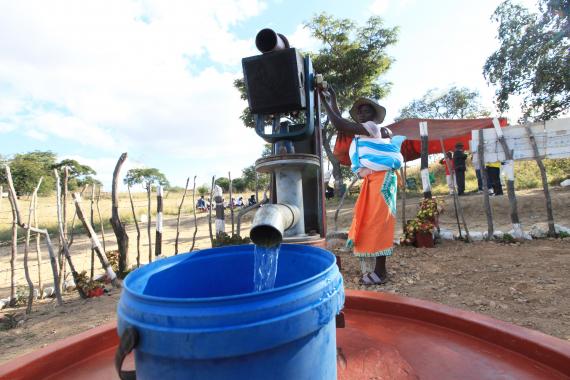Chinhoyi hunts for investors to address water woes
CHINHOYI Municipality is looking for the services of private stakeholders wishing to invest in its unreliable water reticulation system which has an estimated water loss of above 62.5 percent.
Most parts have gone for years without running water due to poor infrastructure and vandalism by some of its residents thereby making it difficult for the Mashonaland West provincial capital to meet its City status target.
As it seeks to address the perennial water challenges in line with the United Nations Sustainable Development Goal Number Six which seeks to ensure availability and sustainable management of water and sanitation for all, the council is looking for public-private partnerships (PPPs) in water deliveries.
The town currently treats at least 24 megalitres of water daily against 30 megalitres it pumps.
Chinhoyi Municipality spokesperson, Mr Tichaona Mlauzi revealed to The Herald that although there was a report before the parliament on issues that were affecting the council, efforts were being made to address them.
Council public relations officer, Mr Tichaona Mlauzi, said stakeholder engagement was ongoing to identify private partners for water augmentation, and curbing vandalism of the reticulation system by residents harvesting water for gardening and other domestic uses.
“We are looking for partners to consummate public-private partnerships (PPPs) in water augmentation and overhaul the infrastructure. We have vandalism and illegal connections challenges and as a council, we are engaging the residents to address this,” he said.
He added that the town was sitting on obsolete infrastructure including the ones at Hunyani waterworks which were built in 1996 currently failing to meet the ballooning population.
“Another external challenge we have as a council is the misuse of water, particularly by residents on the low ground who get most of the water, most of the time. Our pipe network is configured in such a way that water reaches the lowest point first and builds pressure until it gets to high ground.
“Those o high ground end up receiving little or no water at all as those on low ground use water with reckless abandon, at times using hose pipes which are banned.”
According to Auditor-General Mildred Chiri’s 2019 report tabled before parliament last week, huge volumes of potable water were being lost due to pipe bursts, leaks, and illegal connections in the town.
Former mining settlements like Shackleton and Alaska have gone for more than 20 years without running water while in residential areas that include Rujeko suburb, at least 365 out of its 380 households did not have water accounts.-heradlc.lz.w











